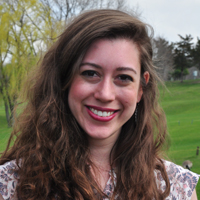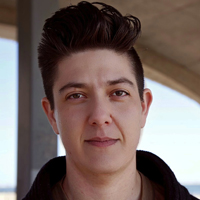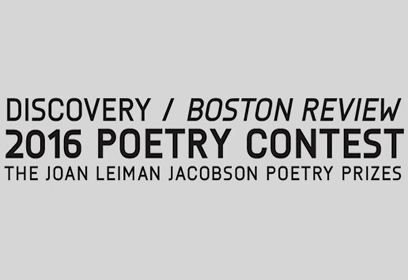Boston Review, in partnership with the 92nd Street Y Unterberg Poetry Center, proudly presents the winners of the “Discovery”/ Boston Review 2016 Poetry Contest awarding the Joan Leiman Jacobson Poetry Prizes. Now in its seventh decade, the contest recognizes and celebrates exceptional work by poets who have not yet published a first book. Many of the contest’s past winners—including John Ashbery, Mary Jo Bang, Lucille Clifton, Nick Flynn, and Mark Strand—have gone on to distinguished writing careers. This year’s competition received more than 1,100 submissions, all of which were read anonymously by preliminary judges Solmaz Sharif and BR poetry co-editor Timothy Donnelly. After much deliberating, final judges Thylias Moss, Paul Muldoon, and Ellen Bryant Voigt awarded this year’s prizes to Ryan Fox, Carlie Hoffman, Gala Mukomolova, and Miller Oberman. The two runners-up are Anderson Carlson-Wee and Rachel Harkai. Winners read from their work at the Unterberg Poetry Center in New York on May 9, 2016.

In My Diminished Capacity for Wonderment
Ryan Fox
In my diminished capacity for wonderment
falling for her in the Flatiron Room a bit
the fires of her eyes went out when I disclosed
the fact of you. Rhiannon. Every Rose.
She drained the honey from her argument,
lip on the cocktail straw. A woman knows.
O partner of me, Kid Cupid, Lucifer
anointed with Coppertone and Astroglide,
I am the cigarette without a light
since the fires of your eyes went out when I mentioned her.
First comes love, and the elegy sun of October
ignites our picnic field. Then comes whatever,
then a crooked little shiv that we call candor.
Over and over we place it inside each other.

Anniversary
Carlie Hoffman
The girl stands on a street corner facing the high school.
It is Sunday, but out front a custodian uses a wooden broom
to clear the fallen leaves into trash bags.
She could have gone anywhere.
To the church, an empty field, to the overpass
near the school, but instead she chose here,
late November, wearing her black coat,
a rose from the city in her hand.
Today, eight years ago, she must have been doing
something important,
but she can’t quite remember what.
Waiting in line with her mother at the market
to purchase the last good apples
of autumn, or staring in a mirror at the plaza
while getting a haircut.
She watches in the cold as the old man knots
shut the top of a filled bag, then makes his way
from the far end of the street inward.
She can’t help but desire to hate him,
his cut knuckles, his cheeks
fevered from the song of working quickly against wind.
She hates him for not pausing
to see her, for the decades of furniture
that separate them, for doing wrong by sleep.
He keeps on sweeping the leaves into blond piles
like dead hair on a barber’s floor, not looking up
at the girl, the scrap of town, the detail of snow
beginning in the branches.
This is the only lesson: Without darkness
there is no music. Through December
she will pray hard beside the window,
toward the ancient trees, people drifting by
out of habit, out of getting on,
the foreign hum of bootsteps.
A prayer that someday she can use this,
that somehow, in the middle, she will wake
styled in the fire and wet light
of winter stars, deciding to begin.

from “Without Protection”
Gala Mukomolova
On the Brighton Beach boardwalk men sit in the rain shelters smelling of piss, shouting drunk genius into the afternoon sun. Men play chess on small portable sets holding beach umbrellas for cover. Men take care of other men, raising them from wheelchairs and guiding them to benches and it looks just like slow dancing. So gentle. And someone, the “they,” has rolled blue carpets from the boards, over the beach, to the pale blue water.
There are so many young mothers but my mother has hope for me too. She says a beautiful girl like me, men must make advances all the time. A beautiful girl like me has to think of her future. A beautiful girl like me, well, cousin Lena turned forty and she quit that Los Angeles life and that Los Angeles girlfriend. Got herself a rich husband, an adopted baby. And, don’t you know they love that baby? They love her despite how, in the wrong light, she’s a little too brown.
I’m furiously stuffing my mouth with black bread because this talk makes me angry and because I’m crying, staring down into my plate, thinking on last night, how you called me difficult when you could have called me beautiful. And here it is, beautiful tumbling out my mother’s mouth like bad oil. More and more I imagine my dead body slumped beside me. It feels peaceful. We’re just having a heart to heart, my mother comforts me, you shouldn’t get so upset.

Wolf Brother
Miller Oberman
Today my brother’s
ghost rode with me
on a white wolf,
loping along
at my horse’s shoulder.
He was faceless
but I’d know that
bone-house anywhere.
Even in this gray waste,
the dust the world left.
It was the time between
night and morning
we used to call dawn,
the stars clinging
to the dark-losing sheet.
I wanted to plead
with him to speak,
to stay, to steal
his wolf’s flesh,
wear that fur awhile.
The sun’s rim rose
bloody but he
was not of blood-stuff,
and with the stars
he faded, I want to think,
gently.








